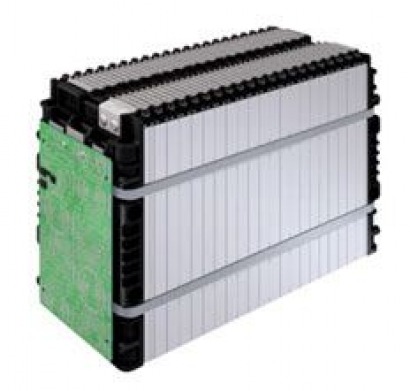
Called Nanophosphate EXT™, the new technology is designed to significantly reduce or eliminate the need for heating or cooling systems, which is expected to create sizeable new opportunities within the transportation and telecommunications markets, among others.
"We believe Nanophosphate EXT is a game-changing breakthrough that overcomes one of the key limitations of lead acid, standard lithium ion and other advanced batteries," said David Vieau, CEO of the Waltham, Massachusetts-based firm.
"By delivering high power, energy and cycle life capabilities over a wider temperature range, we believe Nanophosphate EXT can reduce or even eliminate the need for costly thermal management systems, which we expect will dramatically enhance the business case for deploying A123's lithium ion battery solutions for a significant number of applications," he continued. "We continue to emphasize innovation with a commercial purpose, and we expect Nanophosphate EXT to strengthen our competitive position in existing target markets as well as create new opportunities for applications that previously were not possible to cost-effectively serve with lithium ion batteries."
Unlike lead acid or other advanced battery technologies, Nanophosphate EXT is designed to maintain long cycle life at extreme high temperatures and deliver high power at extreme low temperatures.
According to the testing performed to date at the Ohio State University's Center for Automotive Research (CAR) and the very low observed rate of aging, cells built with A123's Nanophosphate EXT are expected to be capable of retaining more than 90 percent of initial capacity after 2,000 full charge-discharge cycles at 45 degrees Celsius.
CAR has also starting testing the cold temperature performance of Nanophosphate EXT, which A123 expects will deliver a 20 percent increase in power at temperatures as low as minus 30 degrees Celsius.
"Based on our analysis, the performance of A123's new Nanophosphate EXT at high temperatures is unlike anything we've ever seen from lead acid, lithium ion or any other battery technology," said Dr. Yann Guezennec, senior fellow at CAR and professor of mechanical engineering at the Ohio State University.
"Nanophosphate EXT maintains impressive cycle life even at extreme high temperatures without sacrificing storage or energy capabilities, especially as compared with the competitive leading lithium ion technology that we used on our head-to-head testing," Guezennec said. "If our testing also validates the low-temperature power capabilities that A123's data is showing, we believe Nanophosphate EXT could be a game-changing battery breakthrough for the electrification of transportation, including the emerging micro hybrid vehicle segment."
Nanophosphate EXT is designed to extend these capabilities over a wider temperature range, enabling customers to deploy more advanced solutions that increase performance in applications that frequently experience battery cycling at extreme temperatures.
Because Nanophosphate EXT is designed to reduce or eliminate the need for costly thermal management, it is expected to deliver these performance advantages while also increasing reliability, minimizing complexity and reducing total cost of ownership (TCO) over the life of the battery system for a number of applications, including those within the transportation and telecommunications industries.
In addition, the company says, Nanophosphate EXT is expected to enable automakers to significantly reduce or completely eliminate active cooling systems in electric vehicle battery packs. A123 expects this to lower cost, reduce weight and improve reliability, providing automakers with a cost-effective solution that A123 believes will increases efficiency and minimize system complexity without sacrificing vehicle performance, battery life or driving range.
Strategy consultancy Roland Berger forecasts that the global automotive lithium ion battery market will reach more than $9 billion by 2015.
For additional information:

